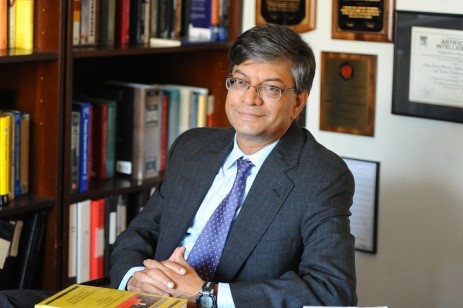Title: Quo Vadis ChatGPT? Challenges and Opportunities in Chemical Engineering.
Date and Time: Friday, September 22. Refreshments served at 12:45 p.m. Seminar starts at 1 p.m.
Location: CHBE 102 (2360 East Mall)
Abstract
The startling success of ChatGPT and other transformer-based generative neural networks in applications such as natural language processing and image synthesis has many researchers excited about the potential opportunities in chemical engineering. However, there is an essential difference between such applications and engineering domains. Science and engineering are governed by fundamental laws of physics and chemistry (and biology), constitutive relations, and highly technical knowledge about materials, processes, and systems. While purely data-driven machine learning has its immediate uses, the long-term success of AI in scientific and engineering domains, I believe, would depend on leveraging first principles and technical knowledge effectively. ChatGPT’s “hallucinations” are perhaps interesting and amusing in certain applications, but they are potentially dangerous in highly technical domains such as ours. In this talk, I will discuss these challenges and opportunities going forward.
Biography

VENKAT VENKATASUBRAMANIAN is the Samuel Ruben-Peter G. Viele Professor of Engineering in the Department of Chemical Engineering, Professor of Computer Science (Affiliate), and Professor of Industrial Engineering and Operations Research (Affiliate) at Columbia University. He earned his Ph.D. in Chemical Engineering at Cornell, M.S. in Physics at Vanderbilt, and B. Tech. in Chemical Engineering at the University of Madras, India. He taught at Purdue University for over two decades, before returning to Columbia in 2011.
Venkat is a complex-dynamical-systems theorist interested in developing mathematical models of their structure, function, and behavior from fundamental conceptual principles. He considers himself as an artist in science, whose natural tendency is to conduct curiosity-driven research in a style that might be considered impressionistic, emphasizing conceptual issues over mere techniques. He strives to create a simplified but essentially correct model of the reality that he studies. Venkat’s research interests are diverse, ranging from AI to systems engineering to theoretical physics to economics, but they are generally focused on the theme of understanding complexity and emergent behavior in different domains.
Venkat received the Norris Shreve Award for Outstanding Teaching in Chemical Engineering three times at Purdue University. He won the Computing in Chemical Engineering Award from AIChE and is a Fellow of AIChE. In 2011, the College of Engineering at Purdue University recognized his contributions with the Research Excellence Award. He served as an Editor for Computers & Chemical Engineering for over a decade. Three of his papers are among the ten most-cited papers in the 43-year history of Computers & Chemical Engineering. His book on economics, How Much Inequality is Fair? Mathematical Principles of a Moral, Optimal, and Stable Capitalist Society, was published in 2017. Venkat’s other interests include comparative theology, classical music, and cricket.